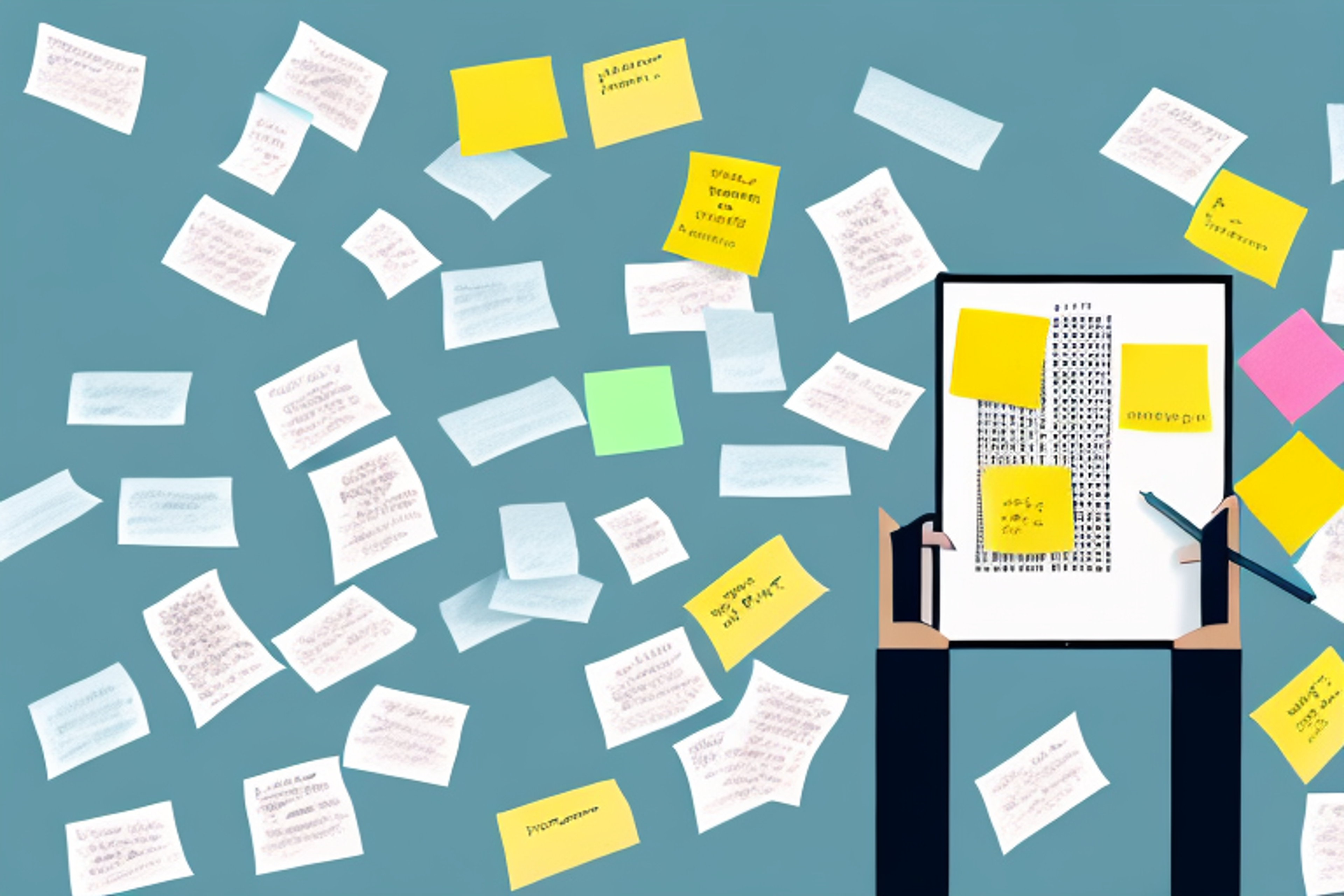PWC Case Interview: A Guide to Ace Your Interview
Are you preparing for a PWC case interview? Look no further! Our comprehensive guide covers everything you need to know to ace your interview and land your dream job at PWC.
Posted March 6, 2025

Table of Contents
If you're looking to kick-start your career at PWC, acing the case interview is a crucial step towards landing your dream job. In this comprehensive guide, we’ll walk you through everything you need to know to nail the PWC case interview. From understanding the structure of the interview, preparing for the case analysis, demonstrating your problem-solving skills, and communicating your thought process effectively, we’ve got you covered. Let's dive in!
What is a PWC Case Interview?
A PWC case interview is the standard interview process for consulting positions at the firm. Unlike traditional interviews, case interviews simulate a real-world business problem that PWC may be facing. The goal is to assess your ability to analyze a problem, think critically, and develop a well-structured and pragmatic solution. As a result, the case interview is designed to gauge your problem-solving skills, business acumen, and communication ability.
During a PWC case interview, you will typically be presented with a business problem and given a limited amount of time to analyze the information provided, identify the key issues, and develop a solution. You will then be expected to present your findings and recommendations to the interviewer, who will ask follow-up questions to test your understanding of the problem and your ability to defend your proposed solution. It is important to remain calm and focused during the interview, and to communicate your thought process clearly and concisely.
Why PWC uses Case Interviews and what it entails
Case interviews are an accurate predictor of how a candidate would perform in the job they are applying for. It tests how one thinks on their feet, how analytical they are, and how strategic they can be. This is why many consulting firms prefer to use this type of interview process. At PWC, case interviews typically last for an hour or two and involve one or two interviewers. You'll be presented with a real-life business situation and asked to solve the problem.
One of the benefits of case interviews is that they allow candidates to showcase their problem-solving skills in a practical setting. This is particularly important for consulting firms like PWC, where clients rely on the expertise of consultants to solve complex business problems. By using case interviews, PWC can ensure that they are hiring candidates who have the skills and experience necessary to provide valuable insights to clients.
Another advantage of case interviews is that they provide candidates with an opportunity to learn more about the consulting industry and the types of challenges that consultants face on a daily basis. This can be particularly helpful for candidates who are new to the industry or who are considering a career change. By participating in a case interview, candidates can gain a better understanding of what it takes to succeed in consulting and whether it is the right career path for them.
Tips for preparing for a PWC Case Interview
Preparation is key when it comes to acing a case interview. Here are a few tips to help you prepare:
- Research the company and the industry: Know the company and the industry trends. This will help you understand the case context better
- Practice with case studies: Practice with real-life case studies from books, websites, and other sources. This will help you develop your analytical and problem-solving skills.
- Mock interviews: Practice with friends, family, or other candidates. This will help you familiarize yourself with the interview process and receive feedback.
- Brush up on basic concepts: Brush up on fundamental business concepts such as finance, accounting, marketing, and strategy.
Understanding the structure of a PWC Case Interview
Before you can prepare for the PWC case interview, it's essential to understand the structure. This will help manage your time and develop a well-structured solution.
The interview typically follows this structure:
- Introduction: The interviewer will introduce themselves and explain the case scenario.
- Problem analysis: The interviewer will ask you questions related to the problem to assess your understanding.
- Case analysis: You'll be given time to analyze the case, and the interviewer will ask you to walk them through your approach.
- Solution development: You'll develop a solution based on your analysis, and the interviewer will ask follow-up questions to test your assumptions.
- Conclusion: The interviewer will conclude the interview and ask if you have any questions.
How to approach and analyze a case during the interview process
One of the essential skills tested in a case interview is your ability to analyze a business problem. Here are a few strategies to help you approach and analyze a case:
- Listen actively: Ensure that you understand the problem correctly by asking questions or restating key points.
- Structure your thoughts: Develop a framework to guide your analysis. This will help you to explore all relevant areas of the problem.
- Focus on key issues: Identify the significant issues and prioritize them based on their impact on the problem.
- Perform calculations: Use quantitative methods to solve the problem. This can be done through data analysis, financial calculations, or forecasting.
- Check your assumptions: Ensure your assumptions are reasonable and logically sound. Be prepared to defend your assumptions if challenged.
Best practices for communicating your thought process during the interview
During the case interview, how you communicate your thinking is just as important as what you say. Here are a few tips for communicating effectively:
- Be clear and concise: Communicate your thoughts in a clear and concise manner to ensure the interviewer understands your reasoning.
- Engage with the interviewer: Communicate with the interviewer throughout the case interview to ensure you're on the right track.
- Be confident: Confidence in your approach and reasoning is essential in communicating your thoughts effectively.
- Be flexible: Be open to feedback and adjust your thinking if necessary.
Common mistakes to avoid during a PWC Case Interview
Here are some common mistakes that candidates make during a case interview that you should avoid:
- Lack of structure: Structuring your thoughts is crucial during a case interview. It helps prevent you from missing critical details and ensures that you have a logical flow.
- Incorrect assumptions: Ensure that your assumptions are reasonable and based on the information provided in the case. Incorrect assumptions can lead to incorrect recommendations.
- Not enough analysis: Taking shortcuts can lead to missing critical details and flaws in your analysis. Ensure that you explore all significant issues and analyze them thoroughly.
- Not being data-driven: Use data and facts to support your analysis. It demonstrates that you're using a logical approach and improves the accuracy of your recommendation.
How to showcase your problem-solving skills during the interview
The PWC case interview is all about demonstrating your problem-solving skills and business acumen. Here are a few tips to showcase your problem-solving skills:
- Be logical: Demonstrate your logical thinking through how you guide the interviewer through your approach.
- Show creativity: Be creative in your approach and solution development when applicable. This showcases that you are not just giving a generic response.
- Show structure: A well-structured approach shows that you are thorough in your analysis and thought process.
- Provide actionable recommendations: Provide recommendations that the company can easily implement that will solve the issues discussed in the case.
Frequently asked questions during a PWC Case Interview
Here are some common questions that may come up during a case interview:
- What is the most significant issue facing the company?
- What would you do if you were in the client's shoes?
- What is the company's competitive landscape?
- What are the advantages and disadvantages of the solution you are proposing?
Preparing for follow-up questions after the case analysis
After proposing your solution, the interviewer will likely ask follow-up questions to test your assumptions and understand your reasoning. Here are some tips to help you prepare:
- Be confident: Be confident in your solution, reasoning, and assumptions. If you're not confident, the interview can question your problem-solving abilities.
- Think critically: Think critically and analytically about your solution, highlighting potential flaws, and their potential impact.
- Be open to feedback: Be open to feedback and adjust your thinking if necessary. This demonstrates humility and flexibility in your approach.
How to demonstrate your passion and fit for the company culture
PWC is known for its unique culture, where diversity, community, and teamwork are highly valued. During the case interview, you can demonstrate your fit with the company's culture by:
- Demonstrating passion: Show passion for the job and the company by discussing how you align with the company's philosophy and mission statement.
- Be engaging: Engage with the interviewer and ask questions related to the company culture that demonstrates your interest in the company beyond the role.
- Showcase teamwork: Show teamwork by highlighting how you work well with others. This can be presented through past work or academic scenarios.
Tips for following up after the interview
After the interview, it's essential to follow up with a thank-you email and reiterating your interest in the position. This shows professionalism and a genuine interest in the job.
Success stories of individuals who aced their PWC Case Interviews
There are many success stories of candidates who aced the PWC case interview. These stories can inspire you and provide insight into their approaches and strategies. Here are a few:
In conclusion, acing the PWC case interview can be challenging, but with preparation, structure, and logic, you can boost your chances of success. It's essential to remember that the case interview is about demonstrating your problem-solving ability and suitability for the company culture. By focusing on these priorities, you'll give yourself the best chance of landing the job. Go get it!



















